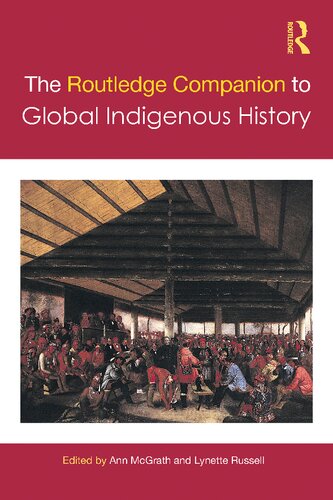

Most ebook files are in PDF format, so you can easily read them using various software such as Foxit Reader or directly on the Google Chrome browser.
Some ebook files are released by publishers in other formats such as .awz, .mobi, .epub, .fb2, etc. You may need to install specific software to read these formats on mobile/PC, such as Calibre.
Please read the tutorial at this link: https://ebookbell.com/faq
We offer FREE conversion to the popular formats you request; however, this may take some time. Therefore, right after payment, please email us, and we will try to provide the service as quickly as possible.
For some exceptional file formats or broken links (if any), please refrain from opening any disputes. Instead, email us first, and we will try to assist within a maximum of 6 hours.
EbookBell Team

4.1
100 reviewsThe Routledge Companion to Global Indigenous History presents exciting new innovations in the dynamic field of Indigenous global history while also outlining ethical, political, and practical research.
Indigenous histories are not merely concerned with the past but have resonances for the politics of the present and future, ranging across vast geographical distances and deep time periods. The volume starts with an introduction that explores definitions of Indigenous peoples, followed by six thematic sections which each have a global spread: European uses of history and the positioning of Indigenous people as history’s outsiders; their migrations and mobilities; colonial encounters; removals and diasporas; memory, identities, and narratives; deep histories and pathways towards future Indigenous histories that challenge the nature of the history discipline itself. This book illustrates the important role of Indigenous history and Indigenous knowledges for contemporary concerns, including climate change, spirituality and religious movements, gender negotiations, modernity and mobility, and the meaning of ‘nation’ and the ‘global’. Reflecting the state of the art in Indigenous global history, the contributors suggest exciting new directions in the field, examine its many research challenges and show its resonances for a global politics of the present and future.
This book is invaluable reading for students in both undergraduate and postgraduate Indigenous history courses.